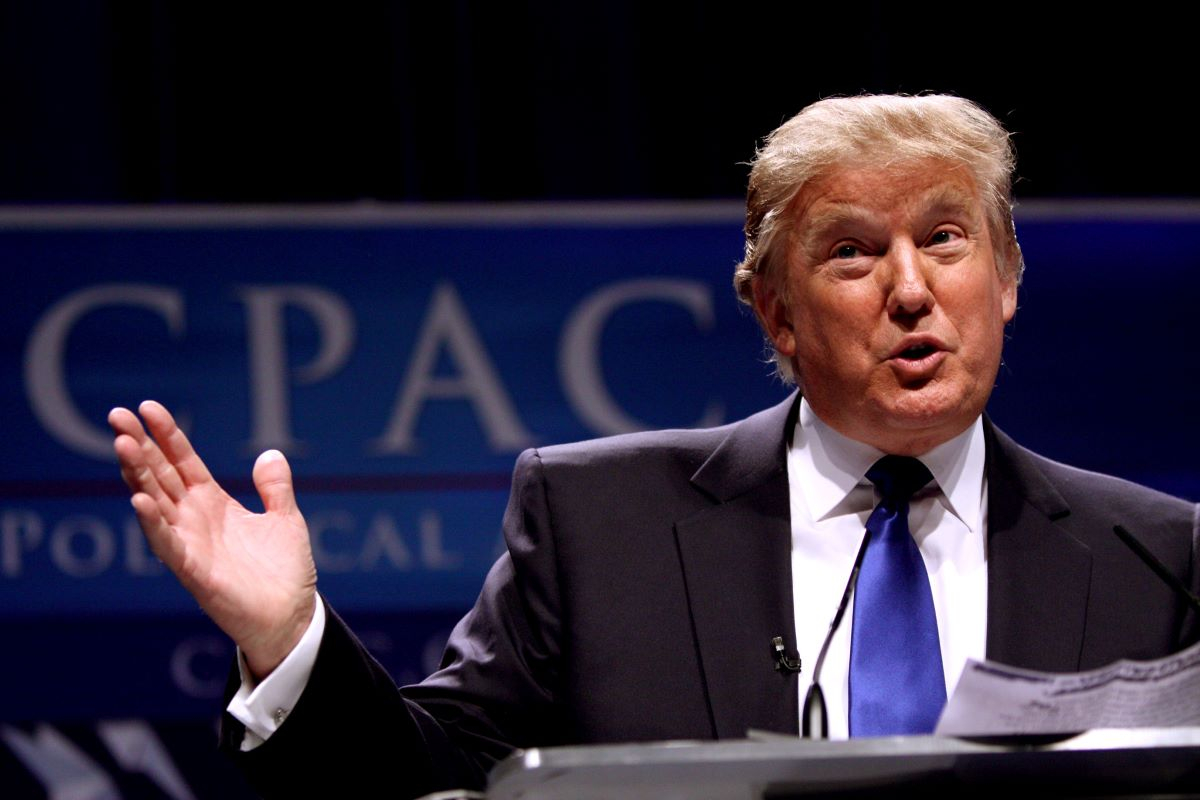This article is also available in Italian / Questo articolo è disponibile anche in Italiano
In the last few days, the new President of the United States, Donald Trump, has announced the implementation of an additional 25% tariff on imports from Canada and Mexico and an additional 10% tariff on imports from China. Furthermore, he told reporters that tariffs “will definitely happen” also for the European Union. However, is there truly an intention to start a global trade war behind these actions, or is it simply a negotiating ploy to gain advantages in negotiations with other countries? We discussed this with Lucia Tajoli, Full Professor in Political Economics at the Politecnico of Milano, to examine the potential implications of these policies on the global economy and the US market.
In the last few days Trump has announced the first tariffs, do you think he is using them also as a negotiating tactic? Take Colombia, for instance — the mere threat of 25% tariffs compelled it to accept migrants expelled from the US.
There is no doubt that Trump is using tariffs both as a negotiating tool and as a pressure instrument. In this case, the threat is especially effective against a country that is relatively small compared to the United States, as may be the case with Colombia, or a country that has a crucial export market in the United States. However, this strategy is not effective towards every country. The situation with China, for example, is entirely different. Furthermore, just as expected, the introduction of US tariffs on Canada and Mexico was met with retaliatory tariffs, that will lead to negative consequences, primarily for American businesses.
Trump often claims that tariffs reduce prices, making importers pay for the costs. Is this economically accurate?
No, this claim is incorrect. Tariffs function as a tax, and taxes increase prices. If a tariff is imposed on a product, who ultimately pays for it? In most cases, economic theory suggests that the cost is passed on to consumers, because it depends on the market power of those involved. For instance, if a product costs 10 dollars and a 25% tariff is applied, the final price rises to 12.50 dollars. The producer continues to receive the same amount as before, while the additional cost is borne by the consumer, who sees the price increase. In the best-case scenario for American consumers, since a price increase reduces sales by at least a little, the producer might decide to absorb part of the cost by lowering their margin — earning 9 dollars and bringing the final price down to 11.25 dollars. The consumer would still see a price increase, while the producer would see a slight reduction in revenue. Moreover, in a scenario where tariffs completely halt exports to the US, the impact on consumers is even worse, because they no longer have those goods available. In this case, they are forced to buy domestic products, which may become more expensive, because US producers are no longer subject to foreign competition.
Could these policies also make inflation worse?
Absolutely. All forecasting models indicate that Trump's tariff imposition would significantly increase inflation. However, this is contradictory, because one of the reasons for his election was precisely the protest against rising prices and inflation.
What about the impact on the US balance of payments?
The impact would be non-existent, as the trade deficit is driven by macroeconomic factors rather than tariffs. This was evident also during Trump’s first presidency when, despite the introduction of tariffs, the trade deficit did not shrink. Instead, the US simply substituted imports from China with imports from other countries. Reducing the trade deficit would require either a significant increase in domestic production or a reduction in consumption — both of which demand different policy measures. For instance, the subsidies Biden has attempted to introduce in certain sectors are far more effective than a tariff-based approach.
So, would tariffs bring any benefits to the US domestic market?
There are no historical examples of countries that have benefited from broad general protectionist policies. On the contrary, nations that have dismantled protectionist barriers have seen economic benefits. Tariffs might be justifiable in very specific cases — when a country chooses to shield a particular sector for political, strategic, or economic reasons. However, such protection always comes at a cost. For instance, supporting the steel industry through tariffs inevitably harms industries that rely on steel, such as automotive manufacturing and construction. Broad-based tariffs, as mentioned earlier, may serve as a negotiating tactic in political or trade disputes, but from an economic standpoint, they are difficult to justify.
And what would be the consequences for Europe, given Trump’s claim that the EU has “treated the US badly” in terms of trade?
Europe is a vital market for the US, just as the US is for the EU. American tariffs would undoubtedly cause harm, particularly to sectors heavily reliant on US exports. However, the US is not Europe’s only trading partner. In fact, during Trump’s first presidency, Europe successfully redirected a significant share of its exports to other markets. The bigger concern, in my view, is the growing uncertainty in global markets. I worry about the discouraging effect this could have, especially on smaller European businesses. Uncertainty about the future may discourage them from expanding into the US market, limiting their ability to seize new opportunities.
Would Europe reply to Trump with similar measures?
Ursula von der Leyen has stated that if tariffs were imposed, the EU would respond, as it has already done in the past. However, one of the key reasons why Trump's tariffs are unlikely to succeed economically is that protectionism typically provokes retaliatory measures from other countries. Europe would likely counter with its own tariffs, trying to convince Trump to lift them in exchange for a mutual commitment to remove them, thus using them as a negotiating tool. Moreover, as Italy is part of the European Union, which operates as a single customs union, any US tariffs on Europe would inevitably impact Italy as well.
What about China? Considering that Trump already started a trade war with China during his first presidency, what could the new implications be?
Tariffs would undoubtedly pose challenges for China, but much like Europe, the US market is significant, but it is not the only one. China has already demonstrated its ability to bypass tariffs by shifting production to countries such as Vietnam, allowing Chinese goods to enter the US through these alternative routes. Moreover, China is far less dependent on exports than it once was. Its export-to-GDP ratio has declined significantly in recent years as Beijing has shifted its development strategies more towards domestic consumption. China is the second largest importer in the world: losing the Chinese market for the Americans would be just as damaging as the Chinese losing the US market. Therefore, any Chinese retaliation would hurt US companies. An example is Elon Musk’s Tesla, which is producing and selling in China. In short, China wields significant negotiating power, not to mention the amount of US debt the Asian country holds.
So Trump is raising his voice with smaller countries, like Colombia or Denmark, but not with the larger ones...
Exactly. Trump has also attempted to raise his voice with individual European nations. However, if the EU was able to present a united front, it would, in some ways, have similar characteristics to China. The problem is that the EU is far less cohesive and struggles to act as a single negotiating bloc. In this context, the Italian government has made a strategic miscalculation. While I understand Meloni’s good intentions, dividing the European front is the certain way to end up as the losers. Against the United States, no single European country holds as much weight as the Union would if it acted together.
So, since Trump has proceeded with these policies, the outlook for the US may not be positive.
In the short term, certain sectors might see some benefits, but overall, the impact would be negative. These decisions are often driven by political considerations rather than long-term economic logic. Even the hi-tech industry, which currently backs Trump, thrives on an open and interconnected global market. Restricting itself to the US domestic market would pose significant challenges, as it is precisely this globalised landscape that has fuelled its success. In simple terms, retreating into protectionism harms everyone in the long run — these are short-sighted strategies.
Cover: Donald Trump photographed by Gage Skidmore, via Flickr



